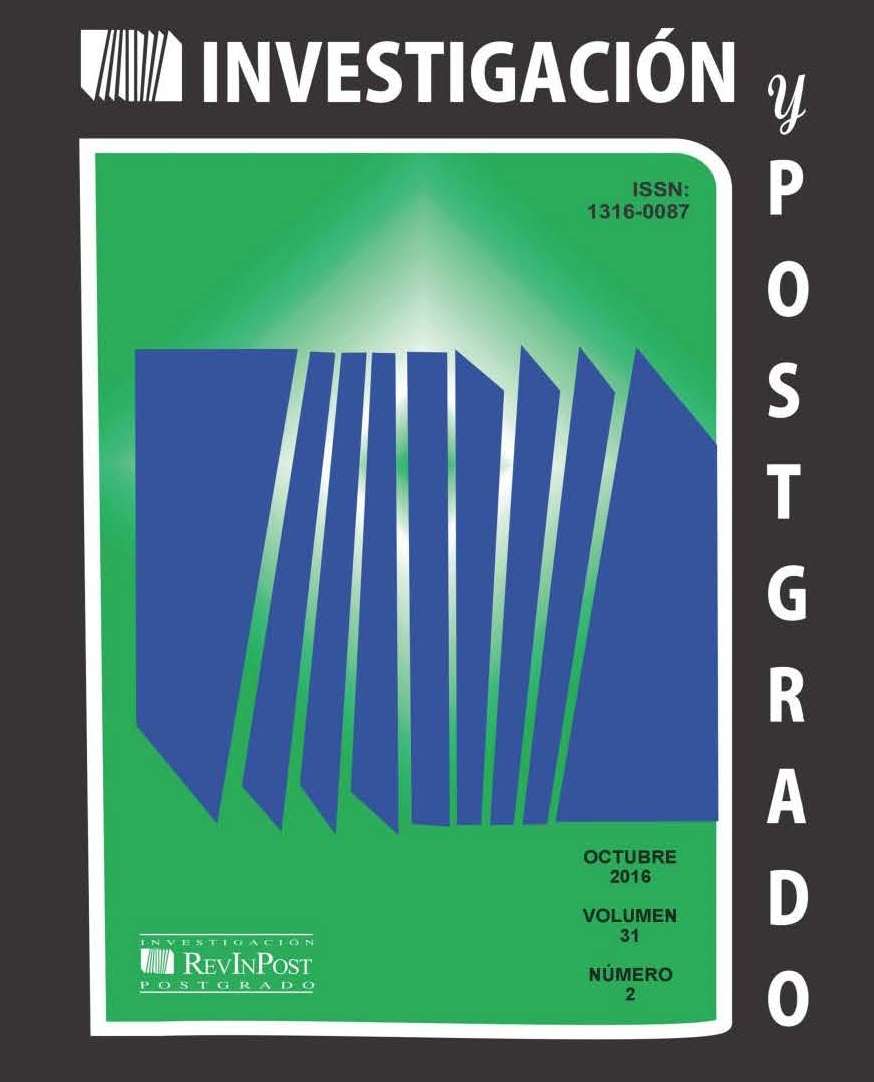EVALUACIÓN DEL PROGRAMA SOCIAL DE LACTANCIA MATERNA OFRECIDO A MADRES ADOLESCENTES (OSMAN) BAJO EL ENFOQUE DE STUFLEBEAM
Palabras clave:
evaluación de impacto, programas sociales, lactancia materna, madres adolescentesResumen
El presente artículo constituye una síntesis de una investigación llevada a cabo a partir de la aplicación del Modelo de Evaluación de Stufflebeam C.I.P.P., con el propósito de evaluar el impacto del programa de lactancia materna ofrecido a madres adolescentes de la Obra Social de la Madre y el Niño (OSMAN), ubicado en Caracas. El estudio se enmarcó bajo un enfoque onto-epistemológico de carácter cuantitativo, con un diseño de campo de carácter descriptivo-evaluativo. La muestra seleccionada estuvo conformada por veinte madres adolescentes del (OSMAN). Las técnicas de recolección de información fueron la entrevista no estructurada y el cuaderno de campo. Se aplicó un cuestionario autoadministrado a las madres adolescentes. Los resultados de este estudio permitieron determinar el impacto positivo del Programa Social Lactancia Materna en las madres adolescentes. Entre las recomendaciones se sugiere no adoptar o encerrarse en un solo modelo o enfoque de la evaluación de impacto.
Descargas
Citas
Cohen, E. y Franco, R. (2001). Evaluación e impacto de proyectos sociales [Libro en línea]. Siglo XXI. Disponible: http://repositorio.cepal.org/bitstream/handle/11362/1915/S3092C678E_es.pdf?sequence=1 [Consulta: 2014, Noviembre 18]
Díaz, M. (2000). La evaluación de programas sociales: fundamentos y enfoques teóricos. Revista de Investigación Educativa [Revista en línea], 18. Disponible: file:///C:/Users/usuario/Downloads/121011-478811-1-PB.pdf [Consulta: 2013, Abril 10]
García, J. (2010). La elección del tipo de diseño de investigación. Revista de Investigación [Revista en línea], 6. Disponible: http://www.nureinvestigacion.es/OJS/index.php/nure/article/viewFile/158/144 [Consulta: 2014, Mayo 05]
ILPES-CEPAL. (1998). Guía para la identificación, preparación y evaluación de programas sociales. Santiago de Chile: Publicaciones de Naciones Unidas.
Matos Bazó, R. (2005). Enfoques de evaluación de programas sociales: análisis comparativo. Revista de Ciencias Sociales [Revista en línea], 11(2), 360-380. Disponible: http://www.scielo.org.ve/scielo.php?script=sci_arttext&pid=S1315-95182005000200011&lng=es&tlng=es [Consulta: 2013, Abril 22]
Niremberg, O. y Ruiz, V. (2000). Evaluar para la transformación [Libro en línea]. Disponible: http://www.top.org.ar/mdc_gps/Nirenberg%20O.,%20Brawerman%20J.%20y%20Ruiz%20V.%20(2000)%20Cap%201,%202%20y%203.pdf [Consulta: 2013, Abril 10]
Obra Social de la Madre y el Niño (OSMAN). (2002). Reseña histórica. Caracas: Editorial Jesuitas de Venezuela.
Pérez, A. y Bustamante, L. (2004). La evaluación como actividad orientada a la transformación de los procesos formativos. Educ Med Super [Revista en línea], 18, 4, 1-1. Disponible: http://scielo.sld.cu/scielo.php?script=sci_arttext&pid=S0864-21412004000400
&lng=es&nrm=iso [Consulta: 2014, Noviembre 6]
Programa Nacional de Desarrollo Humano. (2010). Gestión y Evaluación de los programas sociales. Centro Regional de Servicios para América Latina y el Caribe. New York: Dirección Regional para América Latina y el Caribe Programa de las Naciones Unidas para
el Desarrollo (PNUD).
Ruiz, C. (2002). Instrumentos de Investigación Educativa. Procedimiento para su diseño y validación. Caracas: CIDEC.
Stufflebeam, D. y Shinkfield, A. (1987). Evaluación sistemática: guía teórica y práctica. Barcelona, España: Paidós.
UNICEF. (2012). Monitoreo y evaluación de políticas, programas y proyectos sociales. [Documento en línea]. Disponible: http://www.unicef.org/argentina/spanish/cippec_uni_monitoreo_evaluacion.pdf [Consulta: 2014, Julio 10]
Valadez, J. y Bamberger, M. (1994). Monitoring and Evaluating Social Programs in Developing Countries: a handbook. Washington D.C.: World Bank. Disponible: http://www.perfeval.pol.ulaval.ca/sites/perfeval.pol.ulaval.ca/files/publication_192.pdf [Consulta: 2014, Abril 10]
Weiss, C. (2008). Investigación evaluativa. México: Trillas.
Descargas
Publicado
Cómo citar
Número
Sección
Licencia
Derechos de autor 2016 Universidad Pedagógica Experimental Libertador

Esta obra está bajo una licencia internacional Creative Commons Atribución-NoComercial-CompartirIgual 4.0.
Investigación y Postgrado está bajo una licencia internacional Creative Commons Attribution-NonCommercial-ShareAlike 4.0 .
La política de acceso abierto y de licencias con “algunos derechos reservados” no niega la propiedad intelectual ni los derechos de los autores respecto a sus artículos, al contrario, los respeta. Es por ello que:
No se reservan los derechos de publicación de los artículos. Los autores podrán distribuir su artículo en cualquier otro medio, siempre y cuando sea sin fines de lucro. Debe informar al Editor de esta nueva publicación y debe dar el crédito a la revista Investigación y Postgrado.













